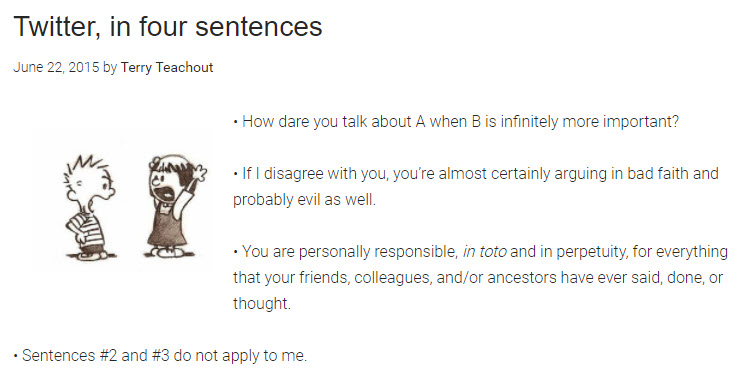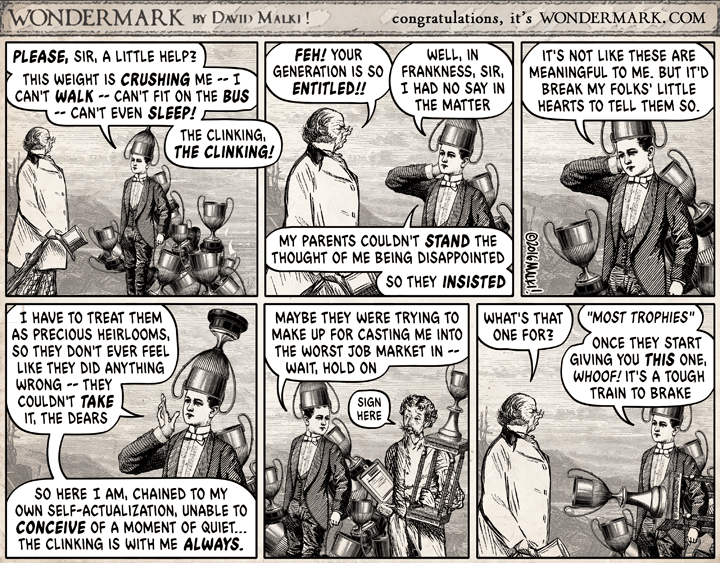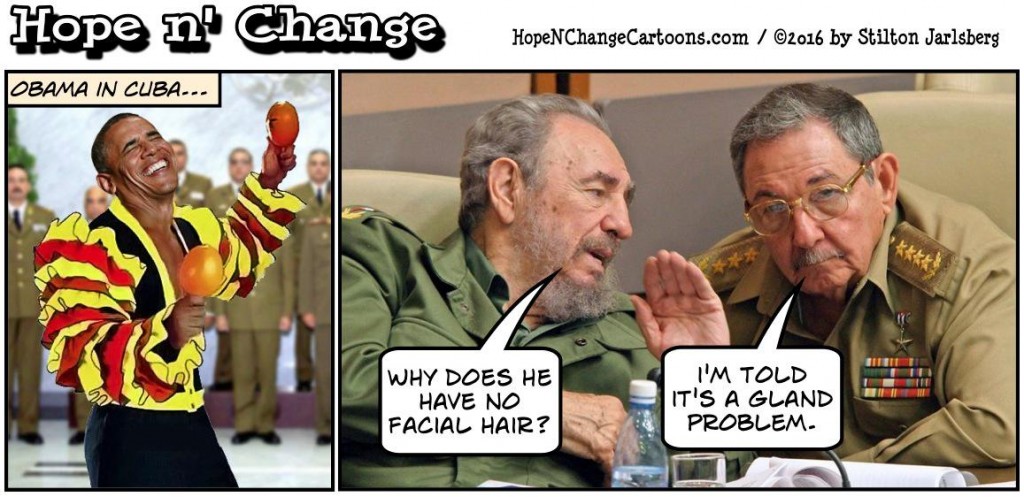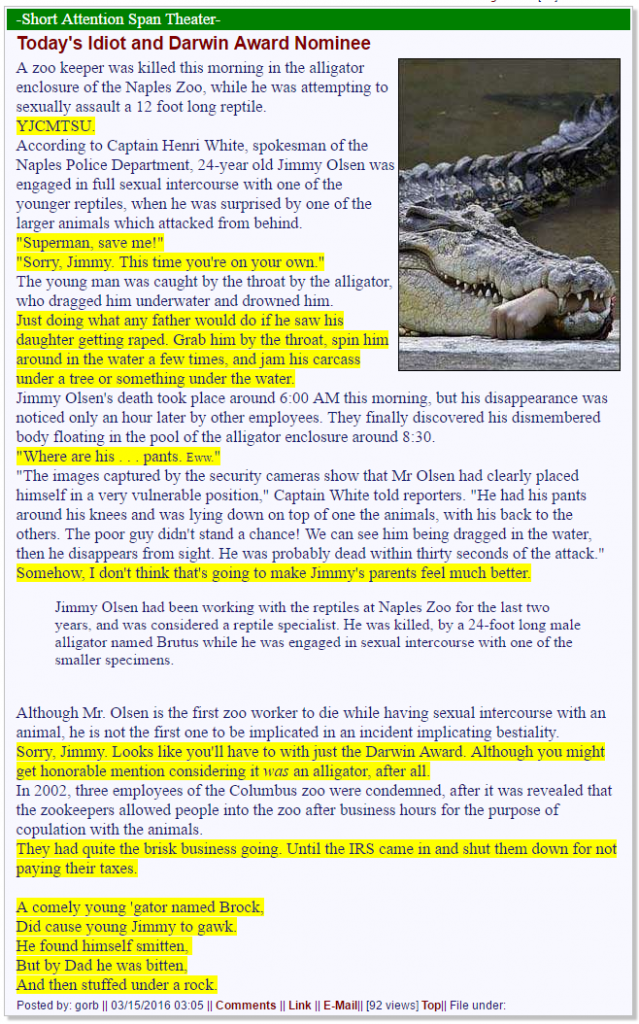via Instapundit
The Millennial’s Dilemma
Cuba Libré
The Four Horsemen
Early Darwin Award Winner
…from the unlinkable Rantburg–
Unemployment- explained!
(lifted from Sarah Hoyt’s blog)

COSTELLO: I want to talk about the unemployment rate in America.
ABBOTT: Good “subject”. Terrible “times”. It’s about 9%.
COSTELLO: That many people are out of work?
ABBOTT: No, that’s 16%.
COSTELLO: You just said 9%.
ABBOTT: 9% Unemployed.
COSTELLO: Right, 9% out of work.
ABBOTT: No, that’s 16%.
COSTELLO: Okay, so it’s 16% unemployed.
ABBOTT: No, that’s 9%…
COSTELLO: WAIT A MINUTE. Is it 9% or 16%?
ABBOTT: 9% are unemployed. 16% are out of work.
COSTELLO: If you are out of work you are unemployed.
ABBOTT: No, you can’t count the “Out of Work” as the unemployed. You have to look for work to be unemployed.
COSTELLO: But … they are out of work!
ABBOTT: No, you miss my point.
COSTELLO: What point?
ABBOTT: Someone who doesn’t look for work can’t be counted with those who look for work. It wouldn’t be fair.
COSTELLO: To who?
ABBOTT: The unemployed.
COSTELLO: But they are ALL out of work.
ABBOTT: No, the unemployed are actively looking for work…Those who are out of work stopped looking. They gave up. And, if you give up, you are no longer in the ranks of the unemployed.
COSTELLO: So if you’re off the unemployment rolls, that would count as less unemployment?
ABBOTT: Unemployment would go down. Absolutely!
COSTELLO: The unemployment just goes down because you don’t look for work?
ABBOTT: Absolutely it goes down. That’s how you get to 9%. Otherwise it would be 16%. You don’t want to read about 16% unemployment do ya?
COSTELLO: That would be frightening.
ABBOTT: Absolutely.
COSTELLO: Wait, I got a question for you. That means there’s two ways to bring down the unemployment number?
ABBOTT: Two ways is correct.
COSTELLO: Unemployment can go down if someone gets a job?
ABBOTT: Correct.
COSTELLO: And unemployment can also go down if you stop looking for a job?
ABBOTT: Bingo.
COSTELLO: So there are two ways to bring unemployment down, and the easier of the two is to just stop looking for work.
ABBOTT: Now you’re thinking like an economist.
COSTELLO: I don’t even know what the hell I just said!
ABBOTT: Now you’re thinking like a politician.
Now, I understand. I think.
To those entranced by Beyonce’s Black Panther tribute at Super Bowl 50
I present an interesting article by David Horowitz. A taste:
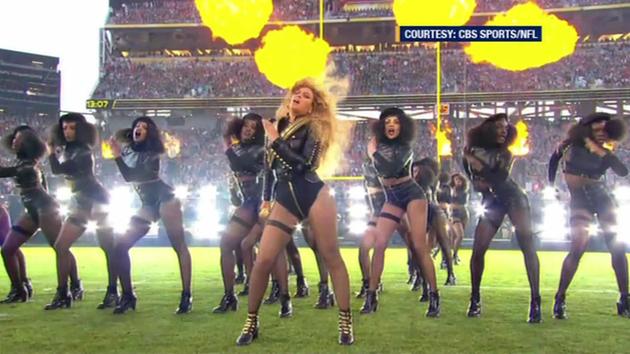
I will never forget standing next to Elaine, as I did months later in growing horror, as she threatened KQED-TV host Bill Schechner over the telephone. “I will kill you motherfucker,” she promised him in her machete voice, if he went through with plans to interview the former Panther Chairman, Bobby Seale. Seale had gone into hiding after Huey expelled him from the Party in August. As I learned long afterwards, Seale had been whipped — literally — and then personally sodomized by Huey with such violence that he had to have his anus surgically repaired by a Pacific Heights doctor who was a political supporter of the Panthers. A Party member told me later, “You have to understand, it had nothing to do with sex. It was about power.” But in the Panther world, as I also came to learn, nothing was about anything except power.
…
My involvement with the Black Panther Party had begun in early 1973. I had gone to Los Angeles with Peter Collier to raise money for Ramparts, the flagship magazine of the New Left which he and I co-edited. One of our marks was Bert Schneider, the producer of Easy Rider, the breakthrough film of the Sixties which had brought the counter-cultural rebellion into the American mainstream. Schneider gave Ramparts $5,000, and then turned around and asked us to meet his friend Huey Newton.
At the time, Newton was engaged in a life and death feud with Black Panther Eldridge Cleaver. Cleaver had fled to Algiers after a shoot-out with Bay Area police. (Eldridge has since admitted that he ambushed them). Schneider wanted us to take Eldridge’s name off the Ramparts masthead where he was still listed as “International Editor.”
Huey’s attraction to the Left had always been his persona as “Minister of Defense” of the Black Panther Party, his challenge to revolutionary wannabees to live up to their rhetoric and “pick up the gun.” Huey had done just that in his own celebrated confrontation with the law that had left Officer John Frey dead with a bullet wound in his back. Everybody in the Left seemed to believe that Huey had killed Frey, but we also wanted to believe that Huey — as a victim of racism — was also innocent. Peter’s and my engagement with the Panthers was more social than political, since Ramparts had helped the Party become a national franchise. Their military style had left me cold, but now, a change in the times prompted the two of us, and especially me, to be interested in the meeting.
Such lovely people. Heroes, almost. Hell, in the Seventies I was almost as seduced as Horowitz, I admit (with much shame).
My generation has a lot to answer for. You Millenials should not pick up that horribly stained banner.


